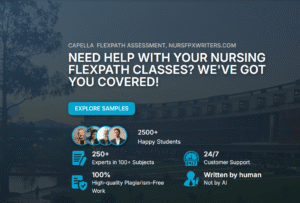Hybrid app expert development allows developers to create a single code base that can be deployed on multiple smartphone operating systems like iOS Android and Windows. These apps usually utilize HTML, JavaScript and CSS programming languages. Experts in mobile app development advocate native apps because of their superior performance and unified user experience (UX). However hybrid applications have their own merits.
Evolution of Mobile Apps
Mobile apps are transforming the way we communicate, work and play. They have become a staple of our daily lives. Making it possible to do everything from ordering food to booking flights. Tracking our fitness progress to identifying the best hotel for a vacation. Apps can be grouped into three categories: native web-based and hybrid. Native apps are designed for specific operating systems, and they can interact with the device’s hardware and sensors. Web-based apps on the other hand are accessed via browsers and run on any operating system.
Hybrid apps, in turn, combine elements of both native and Web-based applications. The majority of the top 50 retail apps in America are hybrid and their popularity is expected to continue to rise. However there are a number of challenges associated with developing a hybrid app expert. For one they are more difficult to maintain than their native counterparts because the code base may vary across platforms. In addition, manual testing can be time-consuming and costly.
Expertise in Hybrid App Development
When it comes to hybrid app development. The best approach is to choose a framework that matches your business goals. You can then decide whether you want to use an existing hybrid app expert or develop a new one. Once you have decided. Your developers can write the code to create an efficient back end and a visually appealing user interface.
Hybrid apps are built using core web technologies like HTML, CSS and JavaScript. This allows them to run on different platforms. Ensuring that users have a consistent experience. Moreover these are often the first languages that most developers learn. Meaning there is a larger pool of talent available to work on hybrid projects than native apps. When choosing a hybrid development firm. Consider their experience and cost. Also make sure that they are located near you so that you can work with them easily.
Case Studies
When a mobile app is ready for release developers need to ensure that it works correctly on all platforms. This involves testing the front and back end to make sure that it looks and performs as intended. To increase performance and shorten launch times. Hybrid apps can leverage the hardware features of each platform. They can use WebView to display desktop web content that has been adapted for iOS and Android devices or they can integrate native code into the application to access native APIs.
Twitter is one example of a successful hybrid app expert that has embraced this approach to deliver fast. High-quality experiences to its users. Other examples include e-mail and shopping applications. Performance optimization of hybrid apps depends on factors such as framework choice, codebase size and quality plugin use and network conditions. In addition leveraging continuous integration and deployment (CI/CD) can speed up development and deployment.
Challenges and Solutions
One of the main challenges with hybrid mobile apps is that they are more difficult to test. A small fix in web code might work on iOS but not on Android or a new feature added in one platform may not be available in another. As such, it is important to keep up with the tech landscape and test crucial functions semi-regularly. In addition, because hybrid apps rely on web technologies. They may run more slowly than native apps. Developers can address this issue by using best practices for resource allocation caching and preloading.
.jpg?1685686970879)
They can also optimize images and videos to ensure that apps load quickly. Finally hybrid app expert can sometimes lack access to device features like cameras and GPS. Which can limit their functionality. To overcome this challenge developers can use plugins to integrate these features into their apps. Testing these plugins to ensure that they function properly across all platforms is essential.
Future Trends in Hybrid App Development
The hybrid mobile app development model will continue to grow in popularity as it offers a cost-effective way to develop apps that function across platforms. However it is important for businesses to find a development team that has the expertise in building an app that can deliver an exceptional user experience and perform flawlessly on each platform. Hybrid apps are based on web tech and utilize native elements to offer a superior user experience.
They are displayed on a device’s WebView and can use platform-specific APIs to access specific hardware features such as accelerometer and camera functionality. Hybrid apps rely on the underlying browser to render their UI and are often faster than native apps. However, their performance can suffer if the developer does not practice progressive web design or does not optimize for poor Internet connectivity. It is also a challenge for hybrid apps to provide a consistent UX that matches the look and feel of native apps.
Expert Insights
Expert insight is one of the most valuable tools a company can use to grow its business. It can help you make smarter decisions. Engage your customers better and improve your company overall. However expert insights can come in many different forms. You can get expert insight from a consultant or you can ask your customer for feedback on your product. Both types of expert insight can be used to drive your business forward.
Hybrid apps are a great option for companies that need to create apps that function on multiple platforms. They are typically less expensive than native apps and can be developed in a shorter amount of time. They also offer a more seamless user experience than native apps and they work on all major mobile operating systems. Another benefit of hybrid app expert development is that it eliminates the need for separate testing cycles for each platform.







